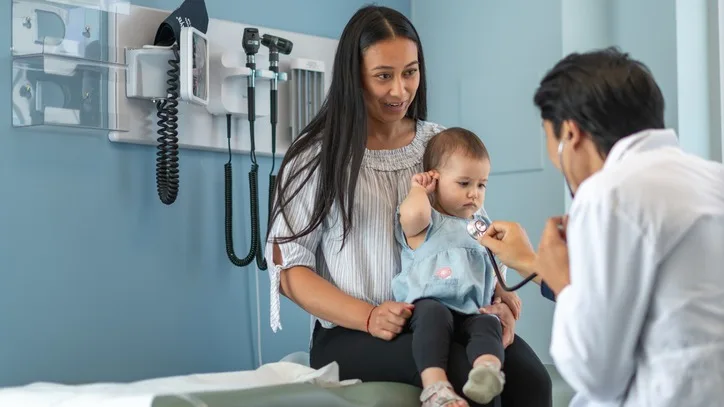
Overview
The Supreme Court’s decision upholding preventive care coverage under the Affordable Care Act signals a stable, growing market for healthcare startups and entrepreneurs.
Free preventive healthcare services are safe for the foreseeable future, according to a recent U.S. Supreme Court ruling that preserves a key provision of the Affordable Care Act, requiring health insurers to cover preventive services without cost sharing.
The ruling on Kennedy v. Braidwood Management, issued June 27, maintains access to more than 150 services, including cancer screenings, immunizations and HIV prevention medications for millions of Americans. Charles Hayes, an economic analyst, wrote that the decision was a win for lab companies, such as Quest Diagnostics, as providers expand preventive screenings, as well as drugmakers with therapies for cardiovascular disease and other chronic conditions.
“The ACA ruling has handed investors a clear roadmap: preventive care is here to stay. Companies with scalable infrastructure, diversified manufacturing, and products aligned with [the U.S. Preventive Services Task Force] guidelines will thrive,” he wrote in a post. “However, regulatory overhang — particularly around drug pricing and foreign production — demands vigilance.”
Prevention ‘Not a Luxury’
Minal Patel, PhD, Professor of Health Behavior and Health Equity at the University of Michigan’s School of Public Health, said the ruling will be critical especially as new concerning trends emerge, like the increase in cancer diagnoses among younger people.
“Prevention isn’t a luxury—it’s how we help people live out what’s possible in their lives,” she said in a statement. “When we see cancer diagnoses happening in younger and younger people, it’s a reminder that early detection through accessible screening can be the difference between a treatable condition and a life cut short.”
Analysts at Jefferies said the decision clears away the biggest source of uncertainty for preventive healthcare entrepreneurs and startups, as well as established companies offering preventive screening, especially those with tests for colorectal cancer. According to the firm’s research, even a modest $15 to $20 co-pay would lead many patients to skip screenings. By upholding the current rules, the court helps keep these tests accessible, supporting steady volumes for companies such as Exact Sciences and Guardant Health.
“We previously highlighted this as the most likely/best case scenario based on our take of the April oral arguments, and we view it as positive for diagnostics companies providing products/services mandated for coverage,” Jefferies’ analysts wrote.
Jefferies also noted that new blood-based colorectal cancer tests could see broader adoption, particularly as upcoming studies from these companies are expected to shape future screening guidelines.
Millions Impacted by ACA Decision
The decision could impact 200 million Americans, as about 60 percent use at least one of the covered services each year, according to A. Mark Fendrick, MD, Professor of Internal Medicine at the University of Michigan.
“Given that many insured Americans who are eligible for no-cost preventive care have not received these potentially lifesaving services, the court’s decision offers a ‘second chance’ for key constituents, including those who initiate screening and diagnose and treat these conditions, to better educate eligible individuals about no-cost screening and to help them navigate the screening continuum,” he said in a statement.
Pharmaceutical companies with FDA-approved drugs for prevention, such as Gilead Sciences, are expected to see continued adoption as insurers remain obligated to cover these medications.
“The data is clear: when preventive care is free, people use it—and lives are saved,” said Rachel Klein, Deputy Executive Director of The AIDS Institute in a statement. “Had this decision gone the other way, cost barriers would have returned for services like PrEP, cancer screenings, and [Sexually Transmitted Infection] testing, setting back decades of progress. Instead, the Court’s decision will ensure that millions of Americans retain coverage for evidence-based, highly effective preventive health care free of cost.”
Not the Final Word for ACA Benefits
While the ruling provides stability for coverage of preventive treatments, the Department of Health and Human Services now holds significant power over the scope of these benefits.
The Kaiser Family Foundation (KFF) noted the ruling avoided the question of whether religious organizations will have to cover medical treatments they disagree with, and instead decided that the government body making the recommendations, U.S. Preventive Services Task Force (USPSTF), has the appropriate authority to do so.
“The Trump administration could change the membership of the USPSTF in ways that may significantly alter the recommendations it issues or ask the USPSTF re-consider earlier recommendations that it disagrees with,” KFF said in a statement. “Given the ongoing litigation in the lower courts and the Trump administration’s recent actions on vaccine recommendations, the Braidwood case is not likely to be the last word on the ACA preventive services coverage requirements.”








